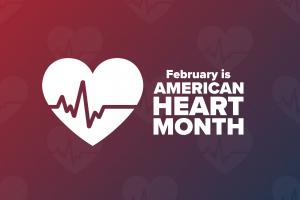
February marks American Heart Month, an observance to recognize the importance of heart health in people of all ages, and a call to action to implement healthy lifestyle practices for best outcomes. As we continue to experience the current health crisis, it’s important that people take the proper preventative measures to ensure their health – including cardiovascular wellness.
The American Heart Association estimates that nearly half of Americans age 20 years or older experience some type of cardiovascular disease, ranging from congenital to acquired heart disease. Additionally, the Center for Disease Control (CDC) notes that 40,000 babies are born each year with congenital heart defects (CHD) and of these, one in every four has a critical congenital heart defect that requires corrective surgery within a year.
Here at Phoenix Children’s Heart Center, we provide advanced health care, including inpatient and outpatient pediatric cardiac services for infants, children and teens experiencing a range of different heart conditions. In addition to offering interventional and transplant services, we specialize in transitional care for children as they progress from pediatric to adult CHD treatment, and we continue to provide comprehensive care for adults with CHD. In fact, we are one of only 38 programs nationwide accredited for Adult Congenital Heart Disease by the Adult Congenital Heart Association. This gold standard is an assurance to parents and young patients, alike, that they can continue their CHD treatment into adulthood without ever having to find an alternative physician or specialist.
As we continue to spread awareness on the importance of heart health, here are a few ways to stay proactive and maintain your healthy heart while reducing your risk of acquiring heart disease, according to the CDC.
- Maintain a healthy weight. Are you a healthy weight for your height, age and more? Consider that additional weight can put excess strain on the heart and blood vessels, contributing to the risk of acquiring heart disease. Adults should calculate and monitor their body mass index (BMI) to ensure the correct weight is achieved and maintained.
- Monitor nutritional intake. Consuming foods with nutritional value can decrease your risk of heart complications throughout your lifespan. Foods high in fiber can reduce the likelihood of heart disease by lowering cholesterol. Conversely, foods low in sodium and sugar can prevent high blood pressure and diabetes. As you consider your heart health, think about what your diet consists of and make the appropriate changes, if necessary.
- Get up and exercise. Consistent exercise can help sustain a healthy weight while also improving blood circulation, blood pressure and heart rate. It’s recommended that children between the ages of six to 17 exercise for 60 minutes each day, while adults between the ages of 18 to 64 should get at least 150 minutes of moderate to intensive exercise each week. Talk to your medical professional about an exercise program that’s right for you.
To kick off this year’s Heart Month, we’d like to say ”thank you” to our nurses, physicians and non-clinical employees at the Heart Center for their dedication to patient-centered care and clinical excellence. We’d also like to show our appreciation for the referring physicians throughout the state who recognize children in need of specialized care and who entrust us to best serve these deserving patients.
Keep an eye on Phoenix Children’s social media as we celebrate Heart Month 2021!
